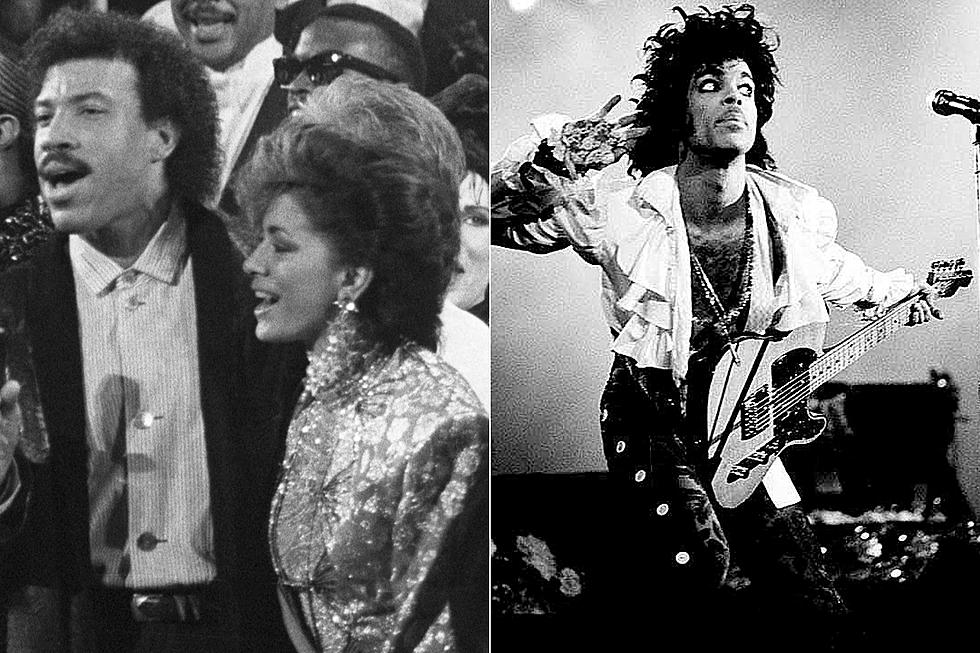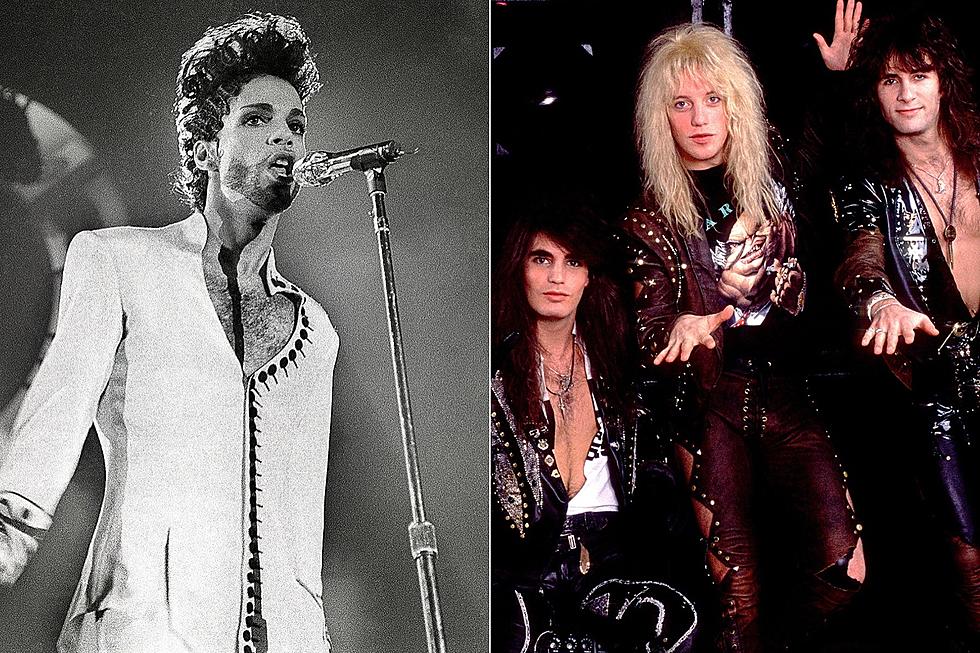
Prince Has a Kinky ‘Rear Window’ Moment in ‘Pheromone’
In the 1954 Alfred Hitchcock classic Rear Window, a wheelchair-bound photographer, played by Jimmy Stewart, spies on his neighbors across the street and, in the midst of witnessing their day-to-day habits and peccadilloes, believes he's witnessed the aftermath of a murder. Such voyeurism became a common conceit in film, from classics like Blue Velvet, Body Double and Blow-Up, to not-so-classics like The 'Burbs or your neighbor's drone footage.
Prince took voyeurism to a kinky, Prince-like extreme on the should've-been hit, "Pheromone," from the 1994 contractual obligation LP Come. Over a cracking drum track (augmented by alternating samples of female and male moaning), he sets the scene in that familiar falsetto:
I can see the beloved and she's not alone …
… I can see the curtain wrestled from the wall
I can see her hands tied
I can see it all
He pulls a gat
This is how they play the game
The perspective is that of the peeping tom, "'round the back," peering in "through the crack in the door," getting the full show as the couple take turns being dominant and submissive, aggressor and compliant. Everyone in the song is aroused, perhaps even the listener, which brings up an interesting circumstance, of the listener being as much a voyeur as the protagonist himself, so exact is he in his description of the scene, so willing the listener is to ride the groove and envision what is transpiring:
I'm on fire, 'cause I have never seen her nude before
I wanna save her (save her)
I want to watch (watch)
All my vital signs go up a couple of notches
When he unties her and she runs for the open door
He trips and grinds her (grinds her)
Right there, all on the floor (on the floor)
Tripping is rude, but she was likely expecting it, breaking her own fall, just in time for a good … erm … grinding. This makes He-Who-Watches quite hot, and also bothered, as well as "helpless as a pet," as he notes in the chorus. He's so close to them—just on the other side of the door, if he's to be believed—that he could, conceivably, jump in and request a role in the role-playing. But the urge to watch—detached in body, engaged in mind—overrides the urge to "save her" from the tripping and grinding, or from the messy, probably sticky conclusion that happens in the third verse, which ends with "a tear / Heading down towards her smile."
It's the next line that complicates the uncomplicated kink of all that preceded it—"What happens next, it all depends upon your style." It all depends upon your style? Apparently, the listener does have some control (and, thus, some culpability) in the scene and sequence. Have we not been voyeuristically voyeuring a voyeur for the previous five or so minutes? Or have we been at a kinky club this entire time? A burlesque presentation? A common peepshow?
Hear Prince Perform "Pheromone"
Prince himself gave us a clue once, in an online Q&A when a fan asked him what his inspiration for "Pheromone" was. His response was a simple line: "Carmen Electra and The Crazy Horse." Ah, The Crazy Horse—Le Crazy Horse de Paris, as the French refer to it—that famous cabaret with its nude dancers, erotic stage productions and magicians making balloon animals. "Pheromone" was a result of a fascination with Le Crazy Horse and the obvious charms of Ms. Electra, a combination which does, one must admit, take the mind to places to which it might not normally venture in polite company.
It makes total sense for Prince to find his muse in such a place and with such a woman. It also makes total sense for Prince to create a song as enveloping and entrancing as "Pheromone," to pull the listener into the scene, the fantasy, the sweaty indecency of it all.
More From Ultimate Prince










